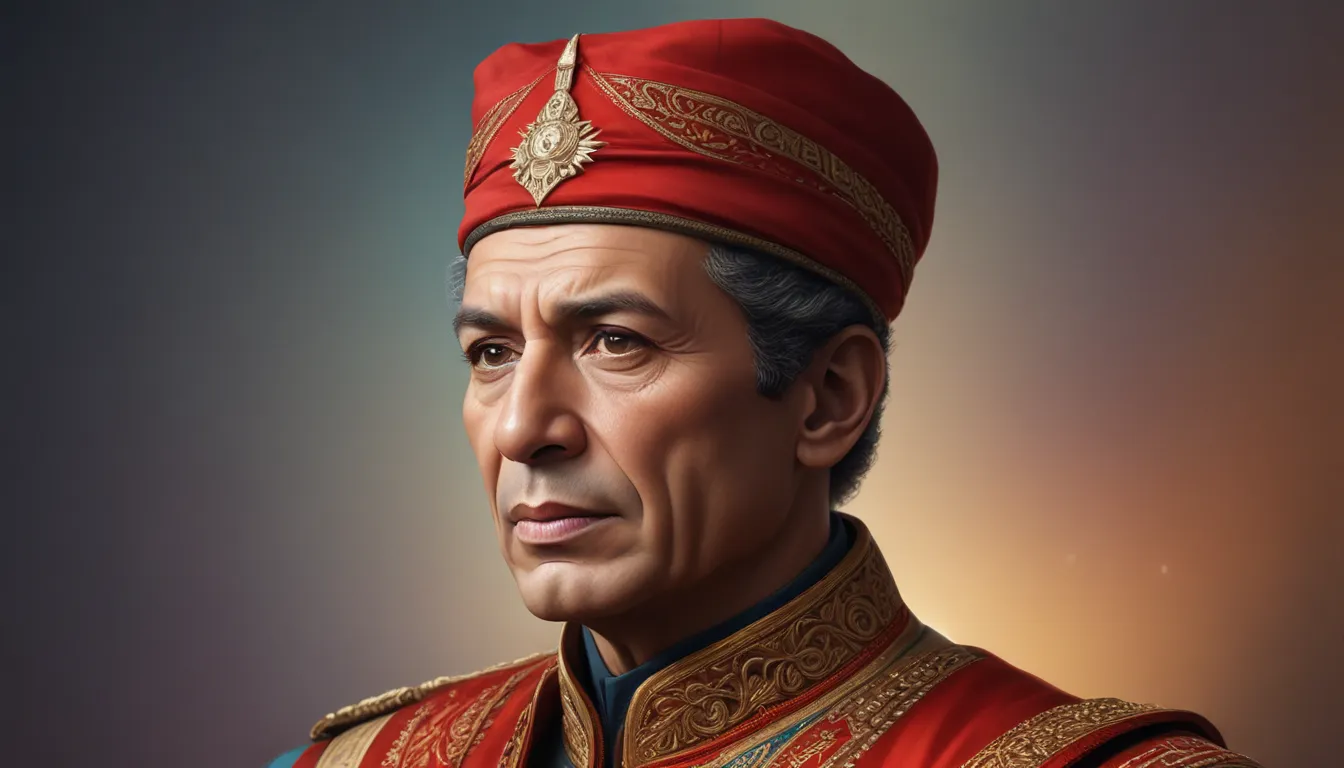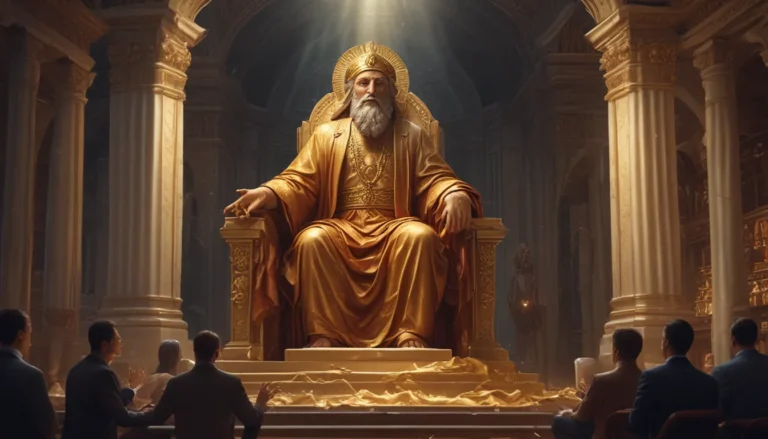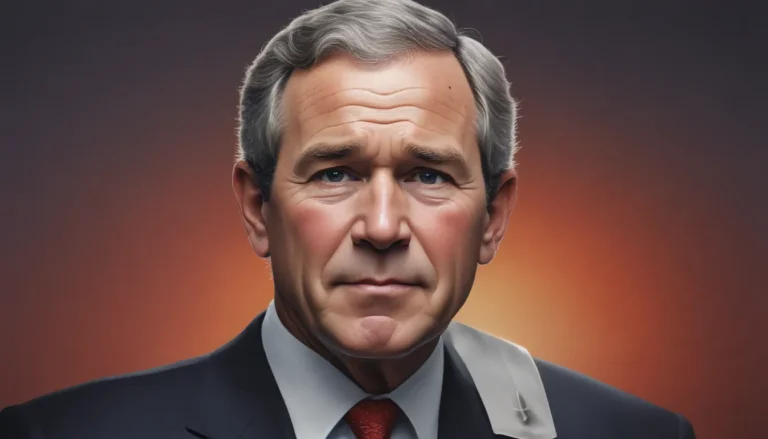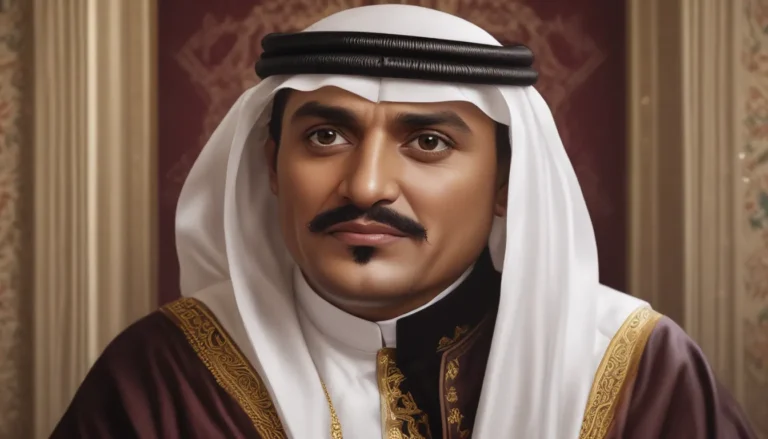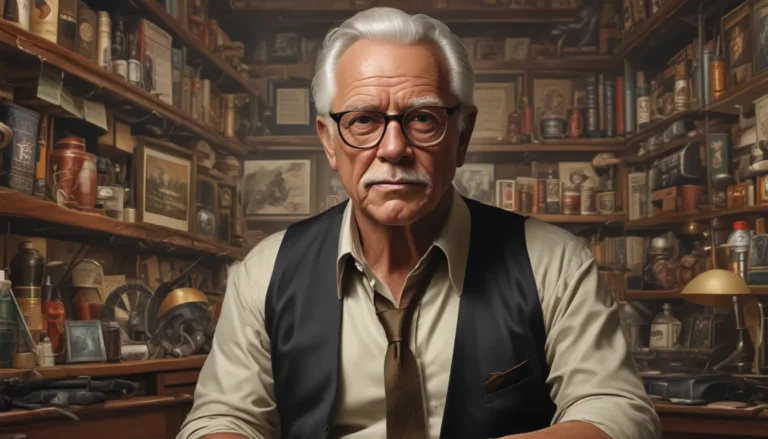The images in our articles may not match the content exactly. They are used to grab your attention, not to show the exact details in the text. The images complement the text but do not replace it.
Muammar Gaddafi, the former Libyan dictator, was a figure who left a lasting impact on Libya and the world. With his eccentricities and iron-fisted rule, Gaddafi’s reign lasted for over four decades, shaping the political and economic landscape of Libya. In this article, we will delve into eight astounding facts about Muammar Gaddafi, shedding light on his personality and the influence he had on Libya and beyond.
Unveiling the Enigmatic Leader: Muammar Gaddafi
Muammar Gaddafi’s rule in Libya spanned over four decades, making him one of the longest-serving non-royal leaders in history. From 1969 until his overthrow in 2011, Gaddafi held the title of the Revolutionary Chairman of the Libyan Arab Republic, solidifying his grip on power and authority in the region.
The Eccentric Fashion Choices of Muammar Gaddafi
Gaddafi was not only known for his iron-fisted rule but also for his eccentric fashion sense. His signature military uniforms, flamboyant robes, collection of hats, and sunglasses made him stand out wherever he went. Gaddafi’s fashion choices were a reflection of his unique personality and style.
Embracing the “Brother Leader” Role
In a move that showcased his belief in direct democracy, Gaddafi declared himself the “Brother Leader” of Libya. His vision of a form of governance called the “Jamahiriya” emphasized his close connection with the people of Libya, solidifying his role as a leader with a distinctively personal touch.
Promoting Pan-Africanism and Unity
Gaddafi was a vocal advocate for African unity and liberation movements worldwide. He played a significant role in the formation of the African Union and championed the idea of a United States of Africa, aiming to strengthen ties among African nations and promote solidarity across the continent.
Supporting Liberation Movements
Throughout his reign, Gaddafi provided financial and military support to various anti-colonial and revolutionary movements globally. Groups such as the Irish Republican Army and the Palestinian Liberation Organization received assistance from Gaddafi, highlighting his commitment to supporting movements fighting against oppression and imperialism.
The Political Ideology Outlined in the Green Book
Gaddafi’s political manifesto, the Green Book, outlined his unique blend of socialism, nationalism, and direct democracy. His ideology, as expressed in the Green Book, shaped his policies and governance, reflecting his vision for Libya and its people.
Facing International Sanctions and Isolation
Due to his controversial actions and support for terrorism, Gaddafi faced international sanctions and became isolated from much of the international community. His actions and policies led to growing condemnation and isolation on the world stage.
The Tragic End of a Controversial Reign
In 2011, after months of protests and armed conflict, Gaddafi’s regime was overthrown during the Libyan Civil War. He was captured and killed by rebel forces, marking the end of a tumultuous and controversial reign.
Exploring Gaddafi’s Legacy: A Complex and Controversial Figure
Muammar Gaddafi’s legacy continues to intrigue and spark debate, with differing views on his impact and actions. While some see him as a revolutionary leader fighting against imperialism, others view him as a dictator responsible for human rights abuses. His legacy shapes the political landscape of Libya and the wider Middle East region, leaving a complex and controversial imprint on history.
FAQs: Delving Deeper into Gaddafi’s Legacy
How did Muammar Gaddafi come to power?
Muammar Gaddafi came to power through a military coup in 1969, overthrowing the monarchy of King Idris and establishing a socialist government in Libya.
What were some of Gaddafi’s controversial actions?
Gaddafi’s controversial actions included supporting and funding various international terrorist organizations, suppressing political dissidents, and implementing strict social policies that restricted personal freedoms in Libya.
How long did Gaddafi rule Libya?
Gaddafi ruled Libya for more than four decades, from 1969 until his death in 2011 during the Libyan Civil War.
What was Gaddafi’s vision for Libya?
Gaddafi envisioned a self-reliant and united Arab world, promoting pan-Arabism and advocating for a unified African Union to strengthen ties among African nations.
Did Gaddafi make any significant changes in Libya?
Gaddafi implemented changes in Libya, including nationalizing industries, redistributing wealth, and improving access to education and healthcare. However, his policies also faced criticism for suppressing political freedoms and human rights abuses.
How did Gaddafi’s reign come to an end?
Gaddafi’s reign ended during the Arab Spring protests in Libya in 2011, with a NATO-led intervention supporting Libyan rebels, leading to his capture and death.
What is Gaddafi’s lasting legacy?
Gaddafi’s legacy is multifaceted and controversial, shaping the political landscape of Libya and the wider Middle East region. Views on his leadership and impact vary, reflecting the complexities of his rule.
Are there any ongoing conflicts related to Gaddafi’s reign?
Yes, the fall of Gaddafi’s regime in 2011 created a power vacuum, leading to ongoing conflicts and political instability in Libya. Various factions and armed groups have vied for control, contributing to a fragmented and turbulent post-Gaddafi era.
Muammar Gaddafi’s life and legacy offer a window into the complexities of leadership and the ever-evolving socio-political dynamics of our world. His story continues to intrigue and prompt discussions, highlighting the enduring impact of his rule on Libya and the broader region. For those curious about exploring more about this enigmatic leader, consider delving into the captivating facts surrounding Gaddafi Stadium in Lahore, Pakistan, for a deeper understanding of his enduring influence.
As we navigate through the diverse facts and complexities surrounding Muammar Gaddafi, our commitment to providing engaging and credible content remains steadfast. Each insight shared on our platform is contributed by real users, ensuring a wealth of diverse perspectives and information. With our dedicated editors upholding the highest standards of accuracy and reliability, trust in our commitment to quality as you embark on your exploration of Muammar Gaddafi’s enigmatic legacy.
